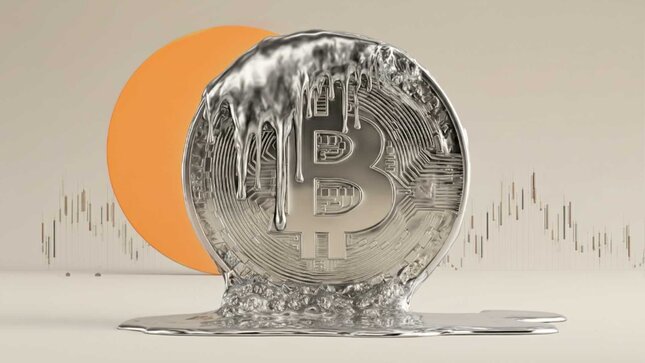Here, we look at the forex and stock markets, highlighting the differences that you should consider when choosing between the two.
Forex trading versus blue-chip investing
If you are looking for a market with high short-term profit potential – and significant accompanying risk – then you may find that the forex market is attractive. It offers high liquidity and significant volatility, meaning that prices can move substantially and that buyers and sellers are always available. This is attractive for short-term swing traders, who look to make profits on price movements that take place over a few days, as well as with day-traders who are looking to open and close profitable positions each day.While it is perfectly possible to day trade highly-liquid blue-chip stocks – and many do – there is generally less volatility than in the forex market. On the other hand, blue-chip stocks can generate steady capital growth and cash dividends of up to 5% a year. It is possible to generate steady cash income in forex as well – through something known as a carry trade – but the risks are much higher than with blue-chip stocks. However, investors must remember that no stock is invulnerable – remember that GM declared bankruptcy as recently as 2009.
Leverage and capital requirements
Another key thing to consider when choosing between forex and stocks is the amount of money you have and the amount you can borrow to trade. This amount you can borrow is referred to as leverage or margin – and is generally about 2:1 for stocks. On the other hand, if you live in the US, you can get 50:1 leverage for forex trading – and this is low compared to other countries. What that means is that to open a $50,000 position, you only need to come up with $1000 if you are trading Forex, whereas you will need $25,000 if you are trading stocks. However, you should always be careful not to use too much leverage, no matter what you are trading. High leverage creates high risk, which is where a lot of forex traders get into trouble.If you do want to trade stocks using considerable leverage, try stock options or futures. This is where you earn the right to buy or sell a stock at a fixed price in the future. The value of an option or future is based on the difference between the future price and the current price – rather than the entire cost of the underlying stock. When you add this to the fact that margin requirements can be as low as 5%, this gives a decent amount of leverage.
In forex, this type of leverage is much easier to come by and you can get leverage of up 400:1, however, as noted already, leverage is a double edged sword.
Editors’ Picks

EUR/USD: Yes, the US economy is resilient – No, that won’t save the US Dollar Premium
Some impressive US data should have resulted in a much stronger USD. Well, it didn’t happen. The EUR/USD pair closed a third consecutive week little changed, a handful of pips above the 1.1800 mark.

Gold: Metals remain vulnerable to broad market mood Premium
Gold (XAU/USD) started the week on a bullish note and climbed above $5,000 before declining sharply and erasing its weekly gains on Thursday, only to recover heading into the weekend.

GBP/USD: Pound Sterling remains below 1.3700 ahead of UK inflation test Premium
The Pound Sterling (GBP) failed to resist at higher levels against the US Dollar (USD), but buyers held their ground amid a US data-busy blockbuster week.

Bitcoin: BTC bears aren’t done yet
Bitcoin (BTC) price slips below $67,000 at the time of writing on Friday, remaining under pressure and extending losses of nearly 5% so far this week.

US Dollar: Big in Japan Premium
The US Dollar (USD) resumed its yearly downtrend this week, slipping back to two-week troughs just to bounce back a tad in the second half of the week.
RECOMMENDED LESSONS
Making money in forex is easy if you know how the bankers trade!
I’m often mystified in my educational forex articles why so many traders struggle to make consistent money out of forex trading. The answer has more to do with what they don’t know than what they do know. After working in investment banks for 20 years many of which were as a Chief trader its second knowledge how to extract cash out of the market.
5 Forex News Events You Need To Know
In the fast moving world of currency markets where huge moves can seemingly come from nowhere, it is extremely important for new traders to learn about the various economic indicators and forex news events and releases that shape the markets. Indeed, quickly getting a handle on which data to look out for, what it means, and how to trade it can see new traders quickly become far more profitable and sets up the road to long term success.
Top 10 Chart Patterns Every Trader Should Know
Chart patterns are one of the most effective trading tools for a trader. They are pure price-action, and form on the basis of underlying buying and selling pressure. Chart patterns have a proven track-record, and traders use them to identify continuation or reversal signals, to open positions and identify price targets.
7 Ways to Avoid Forex Scams
The forex industry is recently seeing more and more scams. Here are 7 ways to avoid losing your money in such scams: Forex scams are becoming frequent. Michael Greenberg reports on luxurious expenses, including a submarine bought from the money taken from forex traders. Here’s another report of a forex fraud. So, how can we avoid falling in such forex scams?
What Are the 10 Fatal Mistakes Traders Make
Trading is exciting. Trading is hard. Trading is extremely hard. Some say that it takes more than 10,000 hours to master. Others believe that trading is the way to quick riches. They might be both wrong. What is important to know that no matter how experienced you are, mistakes will be part of the trading process.
The challenge: Timing the market and trader psychology
Successful trading often comes down to timing – entering and exiting trades at the right moments. Yet timing the market is notoriously difficult, largely because human psychology can derail even the best plans. Two powerful emotions in particular – fear and greed – tend to drive trading decisions off course.


